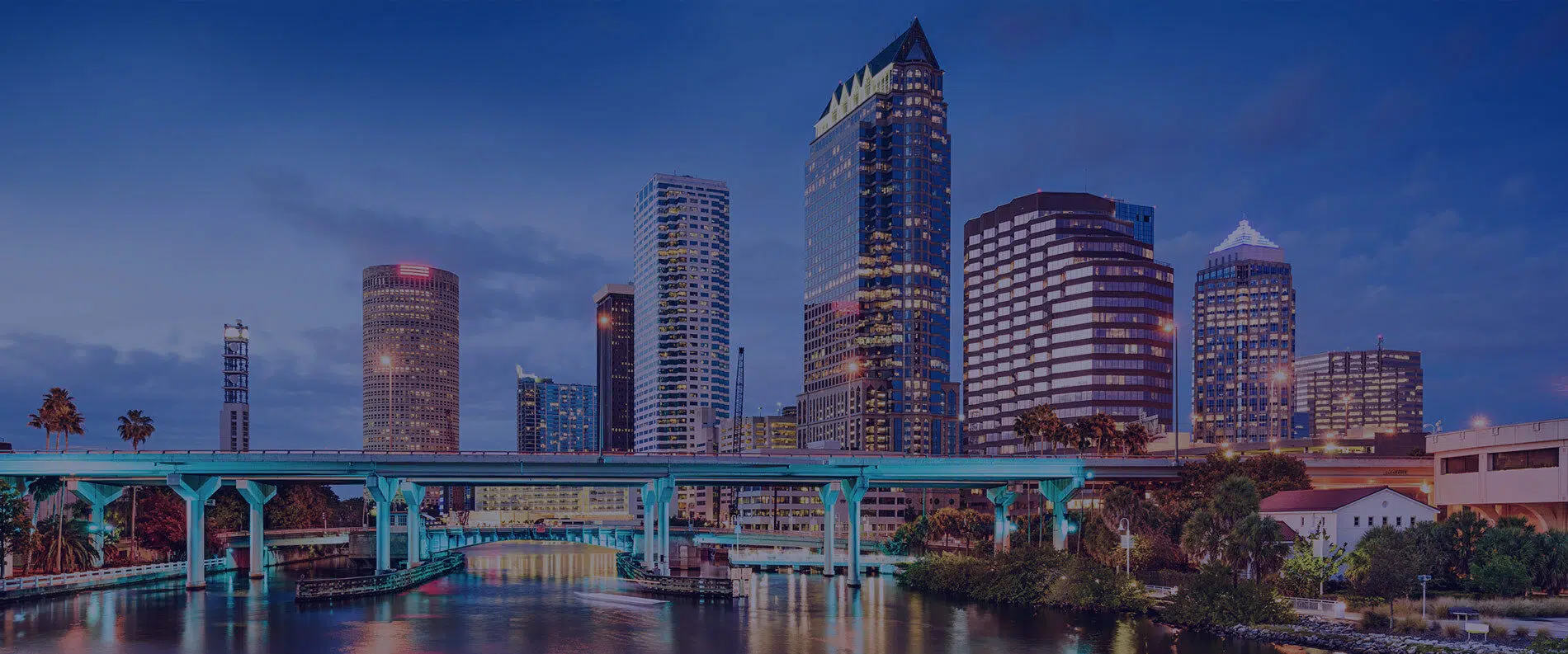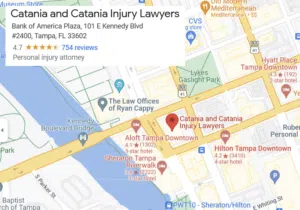
Any accident that involves head trauma can produce a concussion injury. Concussions can happen at any time, from bumping your head on the steering wheel during a car accident to impacting the floor in a slip and fall accident.
Concussions produce short-term and long-term symptoms that can range from inconvenient to severe. Post-concussion syndrome may even require you to change jobs or quit working.
In this guide, we’ll explore concussion injuries and the compensation you can recover for them.
Table of Contents
How Do Concussions Happen?
A concussion is a type of brain injury. Doctors characterize it as mild but widespread. But the term “mild” refers to the fact that concussions will not threaten your life. Still, concussions can produce severe pain and cognitive symptoms.
Two structures protect the brain: the skull and cerebrospinal fluid. The brain rests inside the skull. The bones of the skull protect the brain from direct impact.
Cerebrospinal fluid (CSF) surrounds the brain. The CSF sits between the brain and the skull and cushions it from hitting the inside of the skull.
A concussion happens when head trauma causes pressure in the CSF. This pressure compresses brain cells and can cause widespread bruising of the brain.
The pressure can come from a few sources, which include:
Blunt Force Trauma
Blunt force trauma happens when your head hits an object or if an object hits your head without penetrating the skull. Falling and hitting your head produces blunt force trauma. A falling or flying object striking your head will also produce blunt force trauma.
Blunt force trauma causes the brain to shift around inside of the skull. If the brain strikes the inside of the skull, the trauma produces a brain contusion. But if the CSF stops the brain from striking the inside of the skull, the increased pressure on the brain may cause a concussion.
Blast Injuries
Blast injuries happen when you get hit by a pressure wave from an explosion. Workplace accidents involving explosives or explosive materials can produce blast injuries, leading to a concussion.
Blast injuries cause concussions by changing the pressure of the CSF. Anyone within the blast radius of the explosion will likely experience blast injuries, including ruptured eardrums and concussions caused by a rapid change in air pressure.
Repeated Head Injury
Repeated head trauma can cause severe concussions. Sports injuries often produce these types of concussions. These kinds of injuries have pushed many schools and sports leagues to adopt a concussion protocol. These rules determine when athletes can return to competition after a concussion.
Repeated head trauma causes concussions by damaging brain cells that have already experienced trauma. Even if the trauma of the first injury did not produce a concussion, repeated injury can damage the brain cells and produce a concussion.
What Are the Risk Factors for Concussions?
Many accidents have an increased risk of concussions, including:
Car Accidents
Car accidents involve massive force. You may get tossed around inside of your vehicle. Or, You could receive a concussion when your head impacts the steering wheel, airbag, headrest, side window, or dashboard.
You could also receive a concussion when your chest hits the seat belt and stops your forward motion. When this happens, your head will continue forward, straining your neck and causing your brain to shift inside of your skull.
Pedestrian Accidents
Pedestrian accidents can cause head injuries from the impact of a vehicle and the subsequent impact on the ground. These impacts can cause the brain to slide inside the skull, causing a concussion.
Bicycle and Motorcycle Accidents
Florida does not require bicyclists over 16 or motorcyclists over 21 to wear helmets. As a result, many bicycle and motorcycle riders suffer accidents without protection for their heads.
Florida has some of the highest fatality rates for bicycle accidents and motorcycle accidents in the U.S. These accidents can produce a concussion or other kinds of traumatic brain injuries.
Workplace Accidents
Workplaces can lead to concussions due to:
- Falling objects
- Explosions
- Slip and falls
- Falls from a height
- Vehicle collisions
People who regularly work around heavy objects and powerful mechanical equipment risk concussions at work.
What Are the Symptoms of a Concussion?
Concussions can produce a wide range of symptoms. Some of these symptoms, like blurred vision and tinnitus, should clear up within a week or so. Other symptoms, such as cognitive impairment and behavioral changes, could last for months or longer.
Some of the most common symptoms of a concussion include:
- Loss of consciousness
- Headache
- Dizziness
- Tinnitus
- Blurred vision
- Confusion
- Difficulty speaking
- Memory loss
- Loss of coordination
- Irritability
- Mood swings
- Behavioral changes
Doctors determine the severity of a concussion based on consciousness, confusion, response to stimuli, and coordination.
If a concussion patient loses consciousness, doctors consider the concussion to be severe. Similarly, with a severe concussion, the patient cannot answer questions or stand on their own.
Post-Concussion Syndrome
Concussions can produce long-term effects. Patients who have headaches, confusion, memory loss, mood swings, or behavioral changes that last longer than three months likely have post-concussion syndrome. These symptoms might require ongoing medical treatment, physical and mental therapy, and medication.
What Compensation Can I Recover for a Concussion Injury?
Your damages after a concussion include your past and future medical bills. Since doctors cannot predict how long concussion symptoms will last, you might not have an accurate estimate of your future medical bills.
Doctors also cannot predict whether you will suffer from post-concussion syndrome or require additional treatment for long-standing symptoms after you suffer from a concussion.
Damages can also include your lost income. If a concussion forces you to miss work, take light-duty, cut your hours, or change jobs, you can include your loss of income and diminished earning capacity with your damages.
Because of the uncertainty in the duration of concussion symptoms, you should consult a lawyer before you file an injury claim for a concussion.
You only have a limited amount of time to file a personal injury claim after an accident in Florida—four years for most accidents.
Contact a Tampa Personal Injury Lawyer For a Free Consultation

Did you receive a concussion on the job or in an accident? A Tampa personal injury lawyer can help you to evaluate your case and pursue fair compensation for your concussion injury.
To discuss your concussion injury with an experienced concussion injury lawyer, contact Catania and Catania Injury Lawyers for a free consultation. Contact our law office in Tampa, Florida online or call us at (813) 222-8656. We’ll review your case and help you to determine your next steps.




